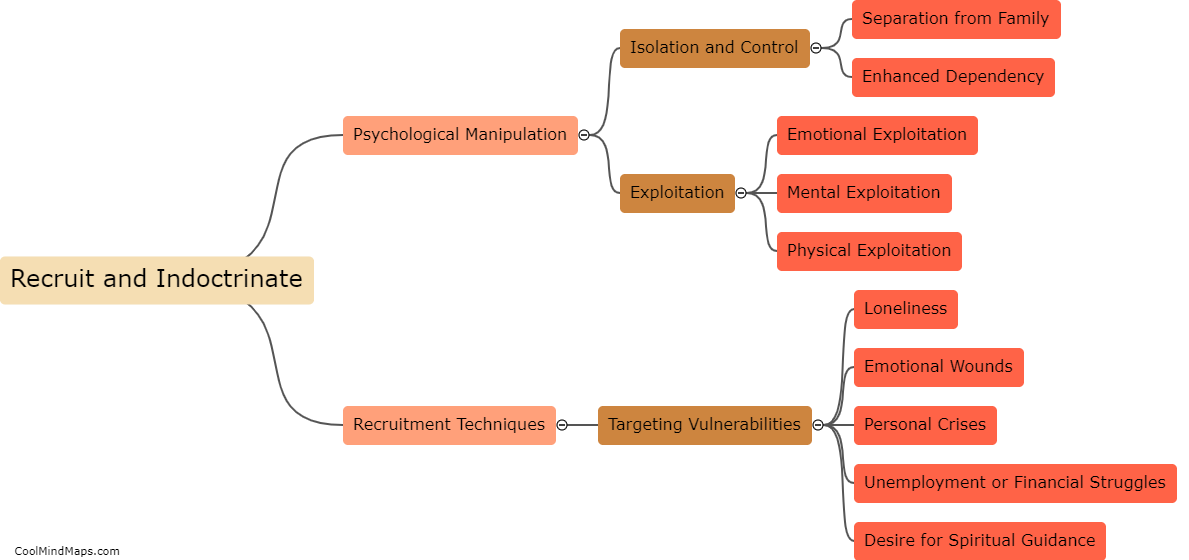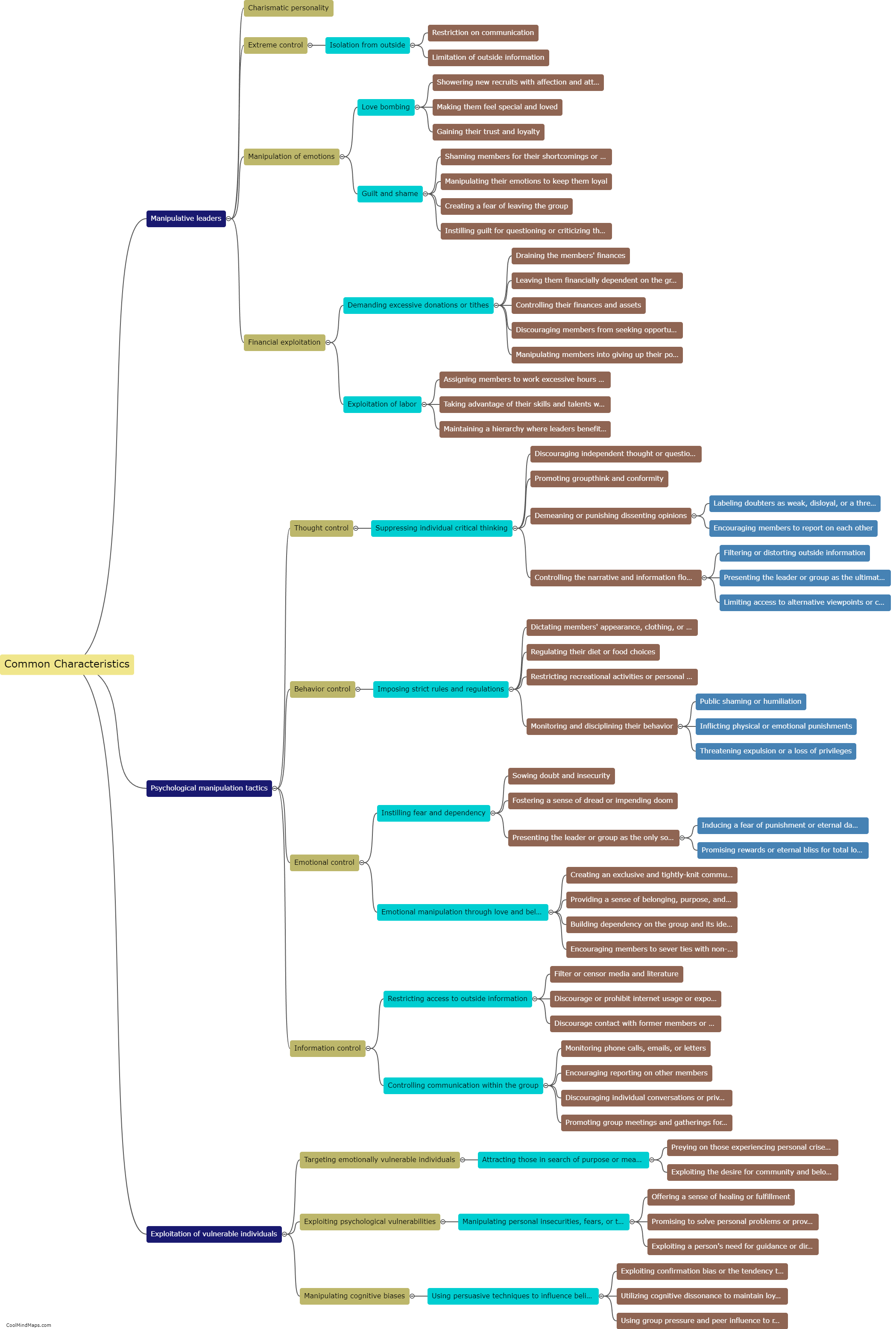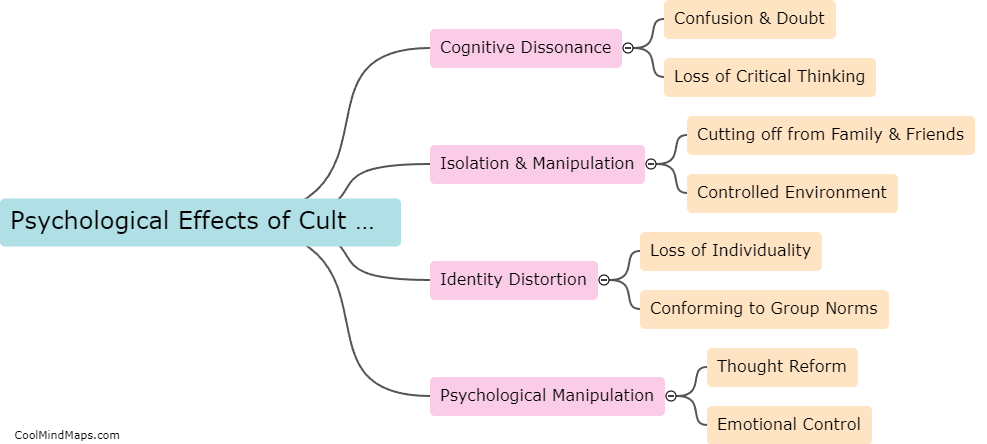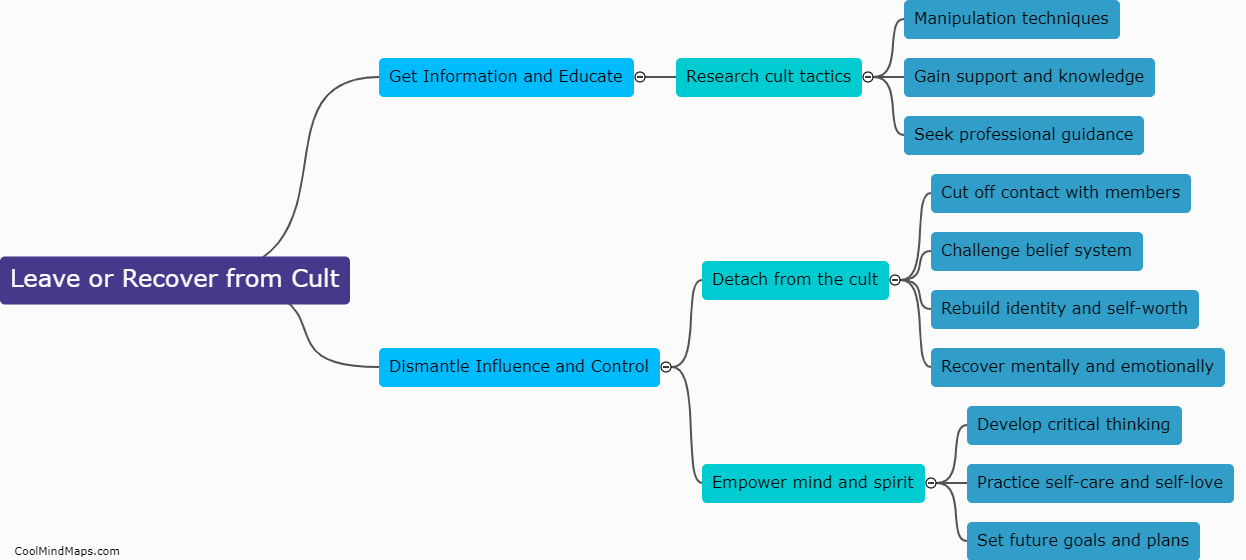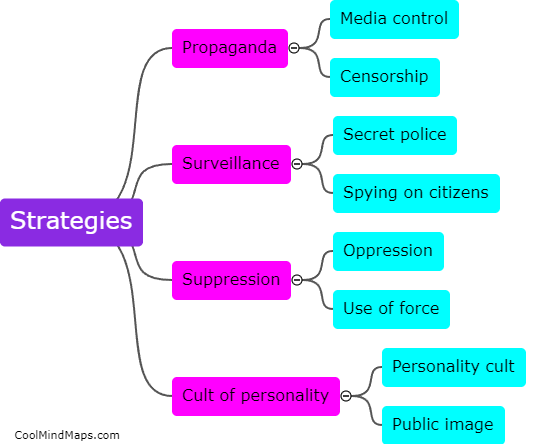What factors contribute to the evolution of dictators?
The evolution of dictators can be attributed to multiple factors. Firstly, a weak or unstable governmental structure provides an opportunity for individuals with authoritarian tendencies to seize power. Additionally, socioeconomic issues such as poverty, inequality, and unemployment can create a sense of discontent among the population, paving the way for charismatic leaders to exploit these grievances and promise stability and prosperity. Furthermore, historical events and traumas, such as post-war chaos or social unrest, can create a fertile ground for a strongman to emerge. The erosion of democratic institutions, lack of checks and balances, and the consolidation of power in the hands of a few individuals can also contribute to the rise of dictators. Ultimately, the confluence of these factors enables individuals with dictatorial ambitions to exploit vulnerabilities and establish autocratic regimes.
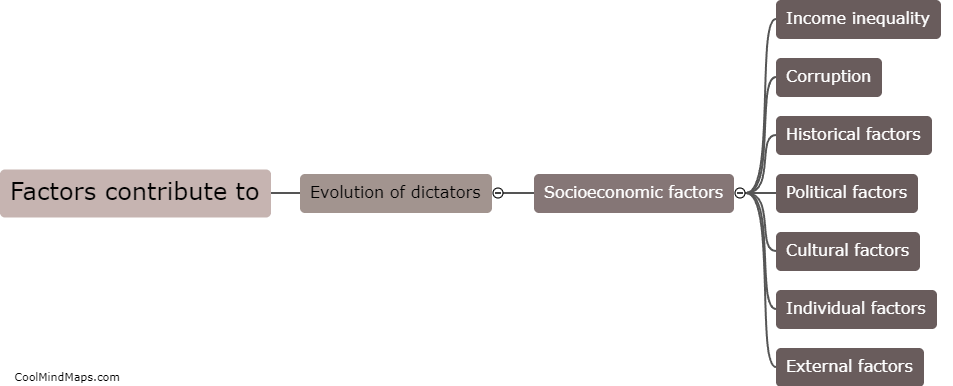
This mind map was published on 20 December 2023 and has been viewed 85 times.




